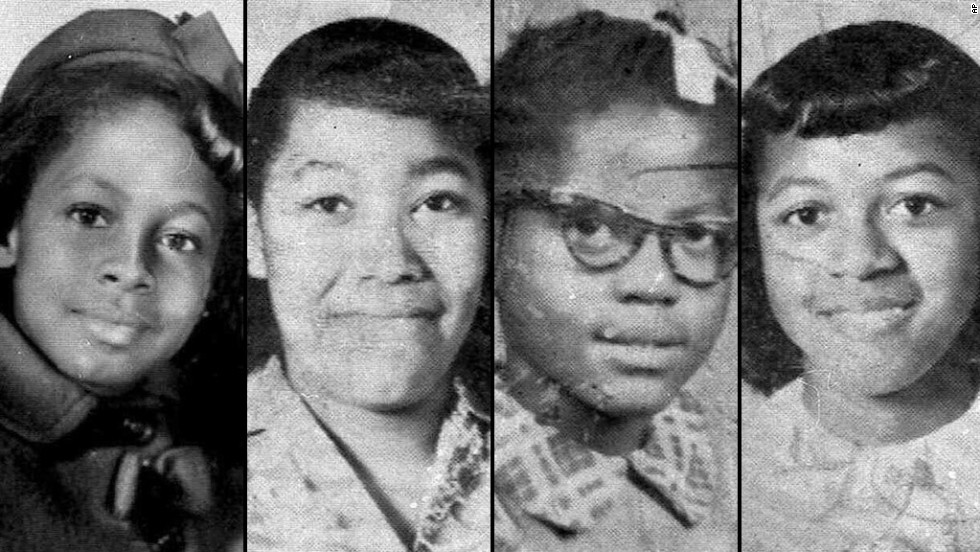Yesterday was the anniversary of the 1963 bombing of the predominately African-American 16th Street Baptist Church in Birmingham, Alabama.
While there has been great disagreement over just about everything related to the tragic incident, most serious observers agree that the bombing occurred in this manner:
In the very early hours of September 15th, 1963, four members of a sub-faction of the Ku Klux Klan planted a time-delayed bomb under the stairs of 16th Street Baptist Church. At around 10:30 a.m., about two dozen children of the church were in the basement of the church. The bomb that was placed under the stairs exploded at that time, and killed the young women pictured above (Denise McNair, Addie Mae Collins, Carole Robertson, and Cynthia Westley), and injured several others.
There is wide debate over the impact the bombing had on the civil rights movement and the passage of the federal civil rights legislation in 1964.
Less disputed, however, are the well-documented difficulties southern and federal prosecutors had in prosecuting the individuals responsible for the bombing.
I think it is fair to say that while some of the men responsible for the bombing were convicted of murder and sentenced to prison for lengthy terms, at least one and perhaps as many as five men who were involved in the planning and execution of the bombing died before they were ever prosecuted for any offense related to the bombing.
In my discussions about the anniversary of the bombing, many people lamented about this fact. They were appalled that there were men who participated in the planning or execution of the bombing who were never brought to “justice.” There were others who were adamant that the unprosecuted individuals would get justice from God.
Naturally, as a former prosecutor, I understand the need for us to want to see wrong doing and wrong doers “brought to justice.”
I also understand that the elected and appointed officials (many obviously understood this desire for justice as well) spent decades, dollars, and effort trying to find a way to punish the individuals responsible for the bombing.
It is an innate need that we have. Justice. It’s like our desire to see movies or television sitcoms or situations in our lives resolved with tidy, if not happy endings. We like comeuppance if and because it brings balance to our affairs.
But what if we expanded our notion of justice? What if we viewed justice as not only bringing punishment to an individual who has done us wrong, but also as a way to further peace and compassion.
Let me explain. When Christ was killed, His followers could theoretically have sought justice in the traditional sense and sought to kill the authorities responsible or have them tried perhaps for a wrongful death. But Christ’s followers created justice by spreading Christ’s message of liberation, peace, and love to the world. That’s justice. I suppose that turned out okay.
As we contemplate the bombing, it is a noble work to find a way to prosecute those responsible for it. It is also as noble and worthy to use the bombing to continue the work of unity and equality the bombers tried to thwart.
That would be justice as well.










